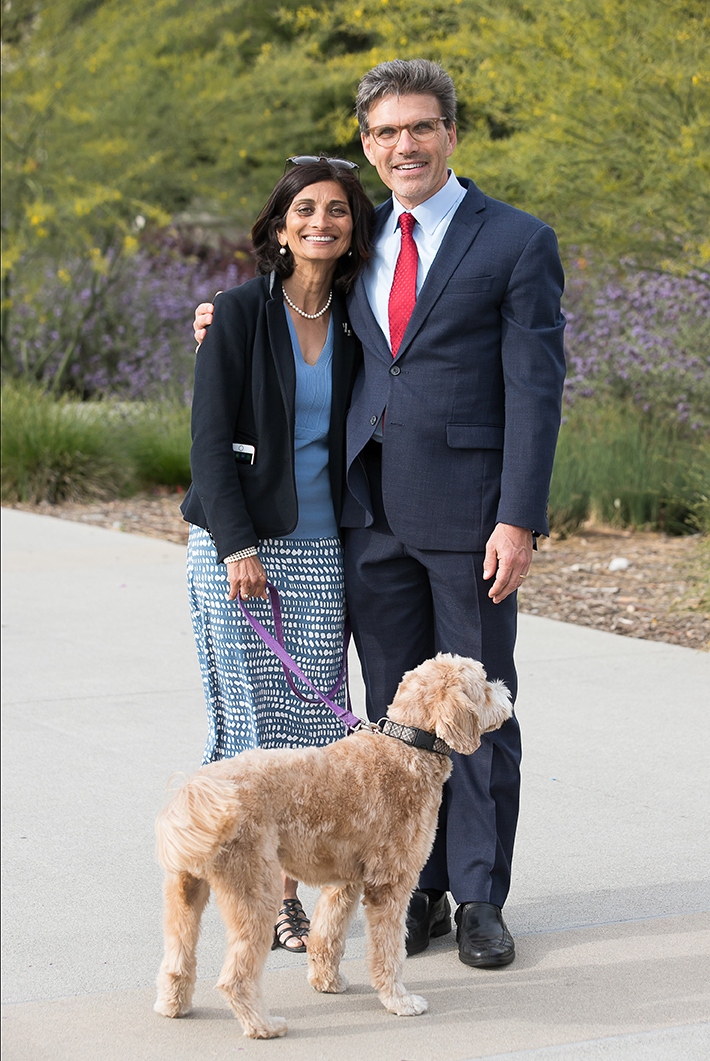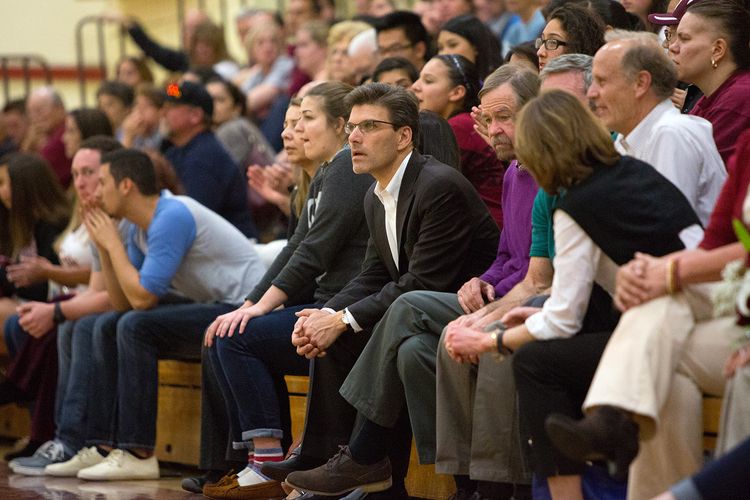Profile
Hiram E. Chodosh
President, Claremont McKenna College
Hiram E. Chodosh is the president of Claremont McKenna College, one of the top liberal arts colleges in the country. President Chodosh is widely recognized for his innovations and accomplishments in both higher education and institutional legal reform with a focus on the structural improvement of emerging legal systems.
Under President Chodosh’s leadership, Claremont McKenna has excelled across several important domains, including dramatic results in access and affordability, low debt, expanded experiential and advanced research programs, strong post-graduate outcomes, and the financial strength of the institution. Claremont McKenna has also been recognized nationally for its commitments to freedom of expression and the high quality of an integrated student life and rigorous academic experience, including a top-ten NCAA Division III student-athletics program that has produced eight national championships since 2016.
In June 2023, Claremont McKenna concluded a record-breaking, nearly $1.1B Campaign for CMC: Responsible Leadership, surpassing the previous high mark of $707M for liberal arts colleges. As part of its campaign and with an eye on the future of higher education, Claremont McKenna launched a $400M project to build scientific and quantitative fluency for all students in the form of a revolutionary undergraduate program. This vision has produced the new Kravis Department of Integrated Sciences, with a commitment to hire 25 world-class teacher-scholars to be housed in a $170M Bjarke Ingles-designed, iconic facility, the Robert Day Sciences Center, set to open in early 2025. Claremont McKenna has also doubled its campus footprint and advanced the implementation of its master plan through the new Roberts Campus. The College has developed a long-term capital strategy and been ranked first in the nation for financial strength and one of the top liberal arts colleges for return on investment by Forbes.
Additionally, Claremont McKenna has achieved sustained increases in the recruitment and success of students who are first in their families to go to college or come from families in the lowest quartile in U.S. family income. In 2022, students receiving federal Pell grants achieved a 100 percent graduation rate. More generally, students supported with financial aid are recording post-graduate salaries that place Claremont McKenna first or second among liberal arts institutions. Based on many of these measures and outcomes, The Wall Street Journal recently ranked Claremont McKenna 9th overall among all U.S. colleges and universities.
Claremont McKenna is also a recognized leader in freedom of expression, a strength based in its Open Academy, a nationally recognized, institution-wide commitment to freedom of expression, viewpoint diversity, and constructive dialogue. In 2019, Heterodox Academy awarded the College its institutional excellence award for promoting open inquiry. President Chodosh has also played an important leadership role in a national collaboration on civic preparedness with the Institute for Citizens and Scholars.
President Chodosh, an avid sports fan, at a CMS basketball game.
In 2015, President Chodosh and 26 students ran the LA Marathon together to raise more than $80,000 in support of The Student Imperative for financial aid and scholarships.
President Chodosh went to public school in Hillside, New Jersey. He received his B.A. with high honors and earned the Dutcher Prize in history from Wesleyan University in 1985. There, he studied intellectual and revolutionary history (with a focus on Russia and China), performance arts (theatre, comedy, and the dance and music of Ghana), and taught his own upper-level course in Russian drama as a junior. After two years of work as a Wall Street consultant in New York and a year of advance theatre and movement training, he received his J.D. from Yale Law School in 1990.

President Hiram Chodosh with his wife Priya Junnar and their dog Theo
President Chodosh entered law practice at the New York City headquarters of the international firm Cleary Gottlieb, where he specialized in transnational practice. In 1993, he left the firm to join the faculty at the Case Western Reserve University School of Law in Cleveland. He served as the Hostetler Professor, Director of the Frederick K. Cox International Law Center, and Associate Dean, before leaving Case to become Dean of the S.J. Quinney College of Law at the University of Utah in 2006. During his tenure there, he served as the Hugh B. Brown Endowed Presidential Professor of Law and the university’s Senior Presidential Advisor on Global Strategy. Under his leadership, the College of Law established several new university centers to address law and bioscience, global justice, educational innovation, and research on veterans, and began construction on an award-winning new law school facility.
Throughout his academic career, President Chodosh has worked on major legal reform projects in more than a dozen countries. He has served in advisory positions on justice reform for the World Bank Justice Reform Group, the International Monetary Fund Legal Department, and several court systems, non-profit organizations, and national commissions throughout the Middle East and Asia. He founded and directed Global Justice Project: Iraq under a $10.4 million grant (2008–10) from the U.S. Department of State and served as the primary author of The Palestinian Legal Study (the first attempt to bring West Bank and Gazan lawyers and judges together to develop a blueprint for an integrated Palestinian legal system). President Chodosh also contributed to judicial reform in Indonesia, Egypt, and several other countries. In 2011, he was named a recipient of the Gandhi Peace Award. In 2013, he was recognized as one of the 25 most influential legal educators in the United States.
As an expert in comparative and international law, with a focus on the reform of legal systems, President Chodosh’s academic publications include Judicial Independence: Cornerstone of Democracy (with Shimon Shetreet, eds., Brill Nijhoff, 2024); Uniform Civil Code of India: A Blueprint for Scholarly Discourse (with Shimon Shetreet, 2016), Law in Iraq: A Document Companion (with Chibli Mallat, eds., 2013), both published by Oxford University Press, and Global Justice Reform: A Comparative Methodology (NYU Press, 2005).


